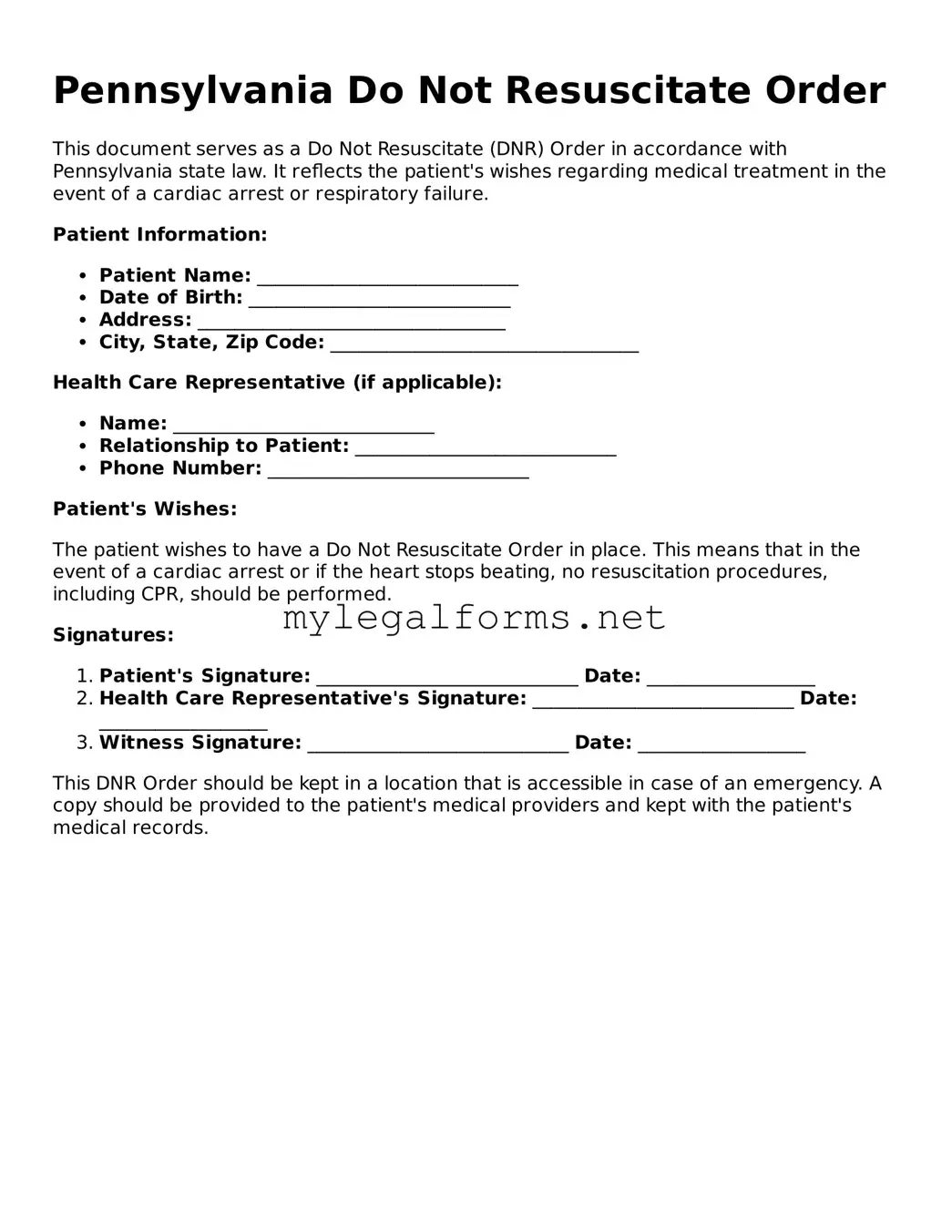Do Not Resuscitate Order Document for Pennsylvania State
A Pennsylvania Do Not Resuscitate (DNR) Order form is a legal document that allows individuals to express their wishes regarding resuscitation efforts in the event of a medical emergency. This form ensures that healthcare providers respect a patient's desire to forgo life-sustaining treatments, such as CPR. Understanding the implications of a DNR Order is crucial for both patients and their families when making informed healthcare decisions.
Launch Do Not Resuscitate Order Editor

Do Not Resuscitate Order Document for Pennsylvania State
Launch Do Not Resuscitate Order Editor

Launch Do Not Resuscitate Order Editor
or
⇓ PDF Form
Complete the form at your pace — fast
Finish your Do Not Resuscitate Order online and download the final version.